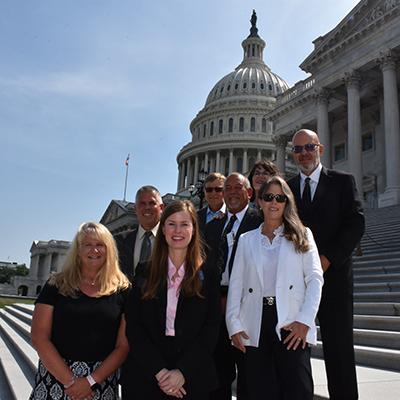
-
Understanding primary immunodeficiency (PI)

Understanding PI
The more you understand about primary immunodeficiency (PI), the better you can live with the disease or support others in your life with PI. Learn more about PI, including the various diagnoses and treatment options.
-
Living with PI
-
Addressing mental health
-
Explaining your diagnosis
- General care
- Get support
- For parents and guardians
-
Managing workplace issues
- Navigating insurance
-
Traveling safely

Living with PI
Living with primary immunodeficiency (PI) can be challenging, but you’re not alone—many people with PI lead full and active lives. With the right support and resources, you can, too.
-
Addressing mental health
-
Get involved

Get involved
Be a hero for those with PI. Change lives by promoting primary immunodeficiency (PI) awareness and taking action in your community through advocacy, donating, volunteering, or fundraising.
-
Advancing research and clinical care
-
Research Grant Program
-
Consulting immunologist
-
Diagnosing PI
-
Getting prior authorization
-
Clinician education
-
Survey research
-
Participating in clinical trials

Advancing research and clinical care
Whether you’re a clinician, researcher, or an individual with primary immunodeficiency (PI), IDF has resources to help you advance the field. Get details on surveys, grants, and clinical trials.
-
Research Grant Program

A Rare Disease Advisory Council, or RDAC, gives individuals with rare diseases, such as primary immunodeficiency (PI), a voice in state government by advising policymakers on critical issues related to healthcare access, insurance coverage, and the diseases themselves. RDACs look different in every state, but have similar goals and diverse memberships, which can include:
- Rare disease patients and caregivers.
- State health department officials.
- Healthcare providers.
- Healthcare industry representatives.
The first RDAC was established in North Carolina in 2015, and the movement to establish RDACs in every state has gained significant momentum since then.
Why establish an RDAC?
In the U.S., approximately 10% of the population has a rare disease, or one of 7,000 diseases that affects less than 200,000 people. This number includes the more than 550 primary immunodeficiencies known to date.
Even though a significant portion of the population has a rare disease, state policymakers typically lack in-depth knowledge about the rare disease community as a whole and the issues relevant to this community. This incomplete understanding contributes to common obstacles that rare disease patients face, such as delays in diagnosis, misdiagnosis, lack of treatment options, high out-of-pocket costs, and limited access to medical specialists.
To help bridge policymakers’ gaps in knowledge, an RDAC serves as an advising body and liaison between the rare disease community and state government. The council helps inform, evaluate, and offer recommendations on policies and issues relevant to the rare disease community. By including individuals who are experts on various rare diseases, RDACs are valuable assets for improving the overall quality of life for those living with rare conditions.
As of June 2025, there are 32 states with established RDACs. In the last several years, IDF has actively supported RDAC legislation in Massachusetts, Michigan, New Jersey, Ohio, Tennessee, and South Carolina through state advocacy workshops, meetings with state legislators, testimony at legislative hearings, and letters of support for RDAC legislation.
Use the interactive map below to explore which states/territories have established RDACs.
Becoming a Rare Disease Advisory Council member
Jessica Goddard and Rachel Goddard from South Carolina, and Marian Furst from Utah discuss their work with Rare Disease Advisory Councils (RDACs).
Sign up for Action Alerts
When policymakers need to hear the PI community’s perspective, you will receive an Action Alert by email. Customize each alert with your information and hit send. It's that easy.
Sign up for updates from IDF
Receive news and helpful resources to your cell phone or inbox. You can change or cancel your subscription at any time.





The Immune Deficiency Foundation improves the diagnosis, treatment, and quality of life for every person affected by primary immunodeficiency.
We foster a community that is connected, engaged, and empowered through advocacy, education, and research.
Combined Charity Campaign | CFC# 66309



